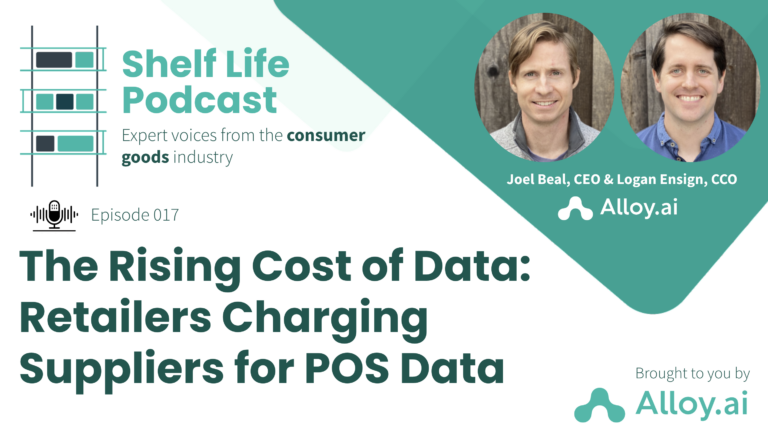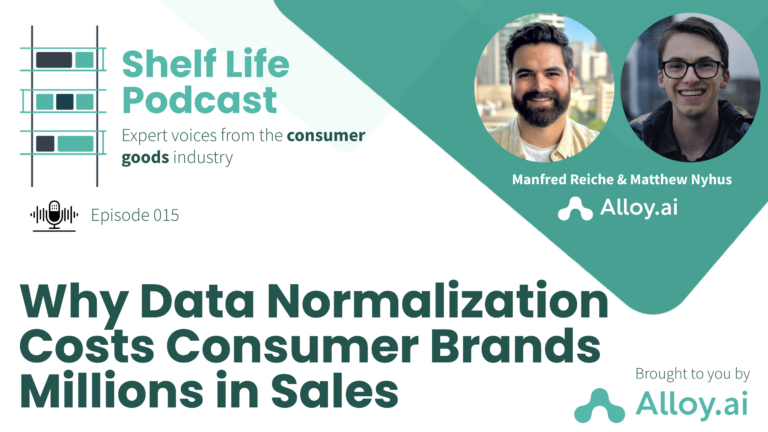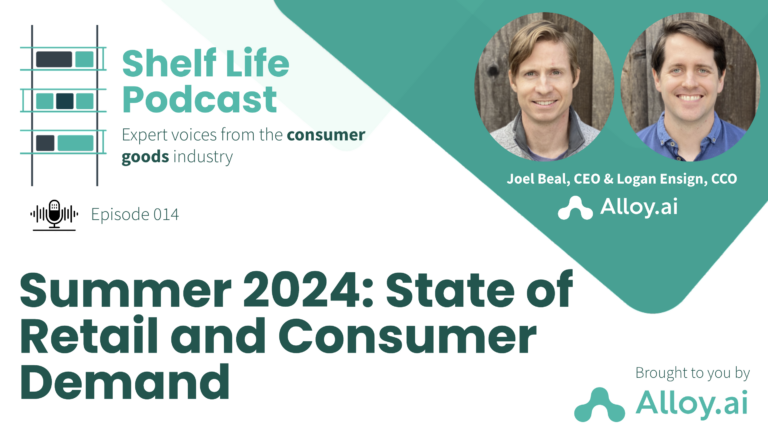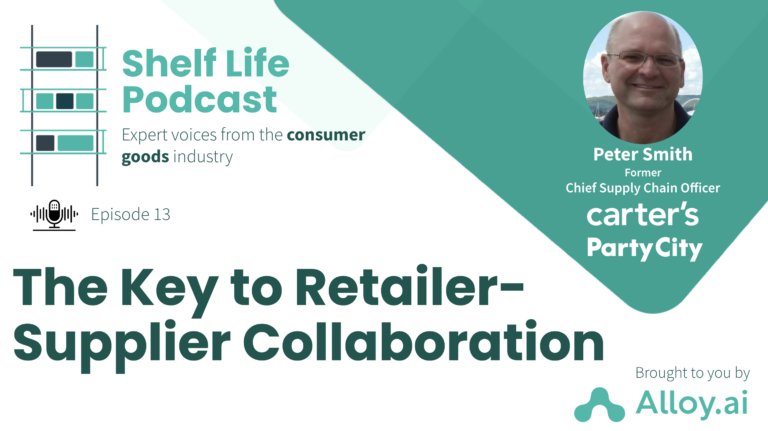Expert Voices from the Consumer Goods Industry
Leaders across the consumer goods industry share their expertise to help you drive growth across your retail and ecommerce business, and grow your career in Sales, Supply Chain, Marketing, and Finance.

Recent episodes
Meet the hosts

Joel Beal
CEO & Co-Founder @ Alloy.ai
Joel started Alloy.ai to help consumer goods brands to make faster and smarter supply chain, planning and sales decisions. Alloy.ai is the platform of choice for leading consumer goods brands – including Bosch, Crayola, Ferrero, Melissa & Doug, Valvoline and many more – across multiple industries.

Logan Ensign
Chief Customer Officer @ Alloy.ai
Logan is an expert in predictive analytics, AI and supply chain. As Chief Customer Officer, his team works closely with customers to help them solve their retail, ecommerce and supply chain data challenges. Before joining Alloy.ai, Logan worked for InsideSales.com, an AI and predictive analytics platform for sales operations.

Abby Carruthers
Director of Product @ Alloy.ai
Abby manages Alloy.ai’s predictive and prescriptive products, including forecasting, simulations, replenishment recommendations and more. She has a background in Client Solutions; helping customers get value from B2B SaaS products across the supply chain and retail analytics space.





